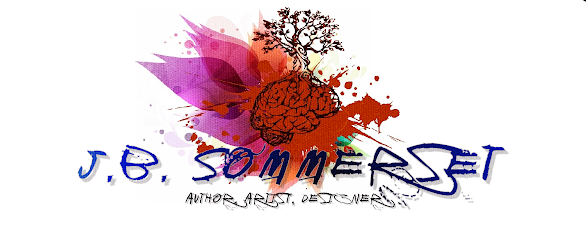More on style...
This is true across many different genres and ages, from Homer and Shakespeare to more contemporary authors such as Asimov, Nicholas Sparks, or J.K. Rowling. Popular authors get recognized and stay recognizable by
the way they write, and by how they can take those seven basic plots and transform
them into a masterpiece.
When I first read “It” by Stephen King, I didn’t
really stop to think how stupid the plot is. I’ll sum it up in a minute, but first I want
to say I loved the book and even though there are better books by him, most
people know “It” and are familiar with at least some of the basic content- if
not because of the movies and popular culture. Who can forget Pennywise, especially
the one portrayed by Bill Skarsgård?
So, here's the plot in a nutshell: Giant Pan-dimensional spider
creature uses clown husk to terrorize a small town in Maine every 23 years and
is eventually banished by the town’s “losers” by use of an ancient and
equally stupid ritual named the “Chud”(pronounced "chewed"). It's a mouth full and it sounds kind of dumb when it's put in such away.
None of this bothered me one bit when I read the book, it still doesn’t. I acknowledge the plot is strange and childish. I love it because King does a fantastic job of hiding the plot in some of the best writing out there. He takes the reader through the story by taking them inside the characters minds, and his ability to engage the reader in such a way is off the chain! He shows the reader why childhood fears are so real and terrifying. Mr. Kings strengths overwhelm the reader and suck them in. He does this time and time again, and it doesn’t matter what the story is about. He has written about all the stupid things kids are scared of- ghosts, vampires, zombies, the devil, and even a giant rabid dog named Cujo. Yet his books aren't for children, and most adults find them, if not terrifying, at the very least creepy as hell.
On the other end of the spectrum, we have complicated plots
with so many characters they are hard to track. Let’s take George RR Martin’s
“Game of Thrones” for instance. If he didn’t do it so well, I would have lost
interest and become confused with how many characters I had to track across the
story. He counterbalanced this by making every single character (at least the important
ones) memorable so the reader wouldn’t have to wonder why they were in the story. Most people don't even care because the characters are so captivating, but let's face it, half the characters in "Game of Thrones" didn't need to be there. He made us fall in love with them and then viciously murdered them, which is the only reason they were in the story in the first place- to be murdered. This is his
thing, no other author does it quite as good as he does. And we all remember
the deaths, so many deaths.
Another great example is Asimov, he has his thing, his schtick. It's technology and robots.
At the time his writing was revolutionary, and many of the terms we use today
were coined by Asimov. It’s one of the things he’s
known for. In fact, we owe a lot of our modern-day terms to Asimov. Words like
Robotics, deep space, pressure suit, and zero gravity were all words coined in Asimov’s
writing.
So, what does all this mean?
It means we need to develop our style until it is sharp and can cut the reader in two. However, cultivating a style is a hard thing to do. It requires practice, work, and patience. But more than that it requires us to have awareness and sensitivity to what our readers like about our writing. Awareness is key to developing our style, being aware is how we can gauge what works for us and what doesn't. We should also be authentic with our writing and try to convey things we can describe well through our own experiences- draw on what we know and what we are familiar with. We should also try and convey our own personal truths in what we write, this will lead to believability and authenticity. When we implement these things, eventually our style will rise to the surface. Not only will the writing be better, but people will know our work by its style.
Keep writing and cheers!



Comments
Post a Comment